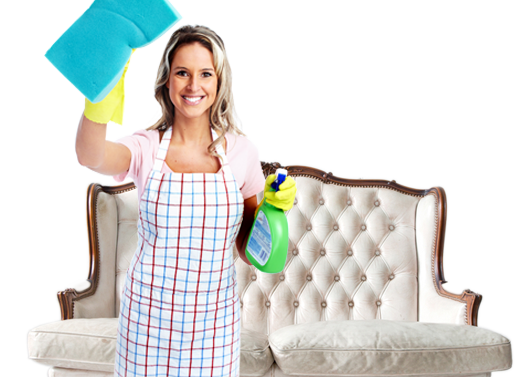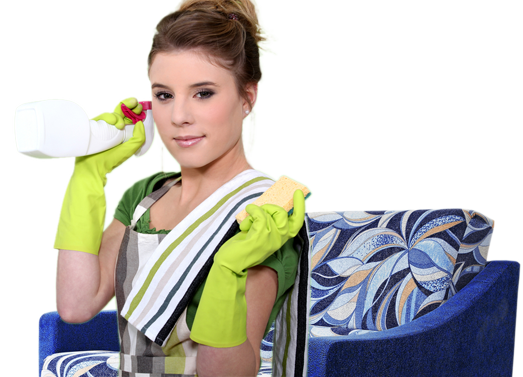Keep Your Kitchen Spotless: Simple Tips for Cleaning Stainless Steel Appliances
Posted on 24/07/2024
Having stainless steel appliances in your kitchen can give a sleek and modern look, but it also requires extra care and maintenance to keep them looking spotless. Fingerprints, water marks, and food stains can easily mar the shine of your stainless steel appliances, making them appear dull and dirty. However, with the right cleaning techniques and tips, you can effortlessly maintain the sparkle of your stainless steel appliances and keep your kitchen looking brand new. In this article, we will share some simple yet effective tips for cleaning stainless steel appliances.
Tip #1: Use Natural Cleaners
When it comes to cleaning stainless steel appliances, you don't necessarily need harsh chemicals or expensive cleaners. In fact, natural products like vinegar, baking soda, olive oil, and lemon juice can effectively clean and shine your stainless steel appliances without causing any damage. Simply mix equal parts of white vinegar and water in a spray bottle and use it to wipe down your appliances with a microfiber cloth. You can also make a paste using baking soda and water to scrub away tough stains on your appliances. Olive oil or lemon juice can be used to polish and add shine to your stainless steel surfaces.

Tip #2: Follow the Grain
Stainless steel has a distinct grain that runs either horizontally or vertically on the surface. When cleaning your appliances, always remember to wipe in the direction of the grain for best results. This will help remove any dirt or grime stuck in between the grains, giving your appliances a thorough clean.
Tip #3: Microfiber Cloth is Key
One of the most important tools you need for cleaning stainless steel appliances is a good quality microfiber cloth. These cloths have tiny fibers that can easily pick up dust and dirt without scratching or leaving streaks on your appliances. Avoid using abrasive materials like steel wool or scouring pads as they can leave unwanted scratches on the surface of your appliances.
Tip #4: Don't Forget the Handles and Knobs
While most people focus on cleaning the visible surfaces of their appliances, handles and knobs are often neglected. These areas are constantly touched with dirty hands and can easily accumulate grime, making them appear dull. Use a damp cloth to wipe down these areas regularly and dry them with a microfiber cloth for a shiny finish.
Tip #5: Be Mindful of Water Stains
Water stains are a common issue with stainless steel appliances, especially if you have hard water in your area. To prevent water spots from forming, dry your appliances thoroughly after cleaning them with a damp cloth. You can also use a mixture of equal parts vinegar and water to remove any existing water stains on your appliances.
Pros and Cons of Stainless Steel Appliances
Pros:
- Sleek and modern appearance
- Resistant to rust and corrosion
- Easy to clean
- Durable and long-lasting
- Can match any kitchen d?cor
Cons:
- More expensive than other types of appliances
- Shows fingerprints and smudges easily
- Requires regular maintenance to maintain shine
- Scratches can be more noticeable
- Can be prone to dents if hit by heavy objects
Tips:
- Always read the manufacturer's instructions for cleaning before using any products on your stainless steel appliances.
- Avoid using abrasive cleaners or tools that can scratch the surface of your appliances.
- Wipe up spills or food stains immediately to prevent them from drying and becoming harder to remove.
- For tough stains or stubborn dirt, use a soft-bristled brush to gently scrub the area.
- Regularly clean the exterior of your appliances, but also remember to clean inside as well for optimal performance.

Key Takeaways
- Natural cleaners, microfiber cloths, and following the grain are essential for cleaning stainless steel appliances.
- Don't forget to clean the handles and knobs as well.
- Be mindful of water stains and dry your appliances thoroughly after cleaning.
- Stainless steel appliances have their pros and cons, but with proper care and maintenance, they can last for many years.
In conclusion,
maintaining a spotless kitchen with stainless steel appliances may require some extra effort but is definitely worth it. With these simple tips, you can effortlessly keep your appliances looking shiny and new, making your kitchen a welcoming space for cooking and entertaining. Remember to use natural cleaners, a microfiber cloth, and pay attention to visible and hidden areas for the best results. With regular cleaning and proper care, your stainless steel appliances will continue to be the centerpiece of your kitchen for years to come.Latest Posts
Discover the Key to Permanent Curtain Freshness
The Best Ways to Polish Your uPVC Window Frames
Reclaim your living space using our essential Spring Deep Clean itinerary





